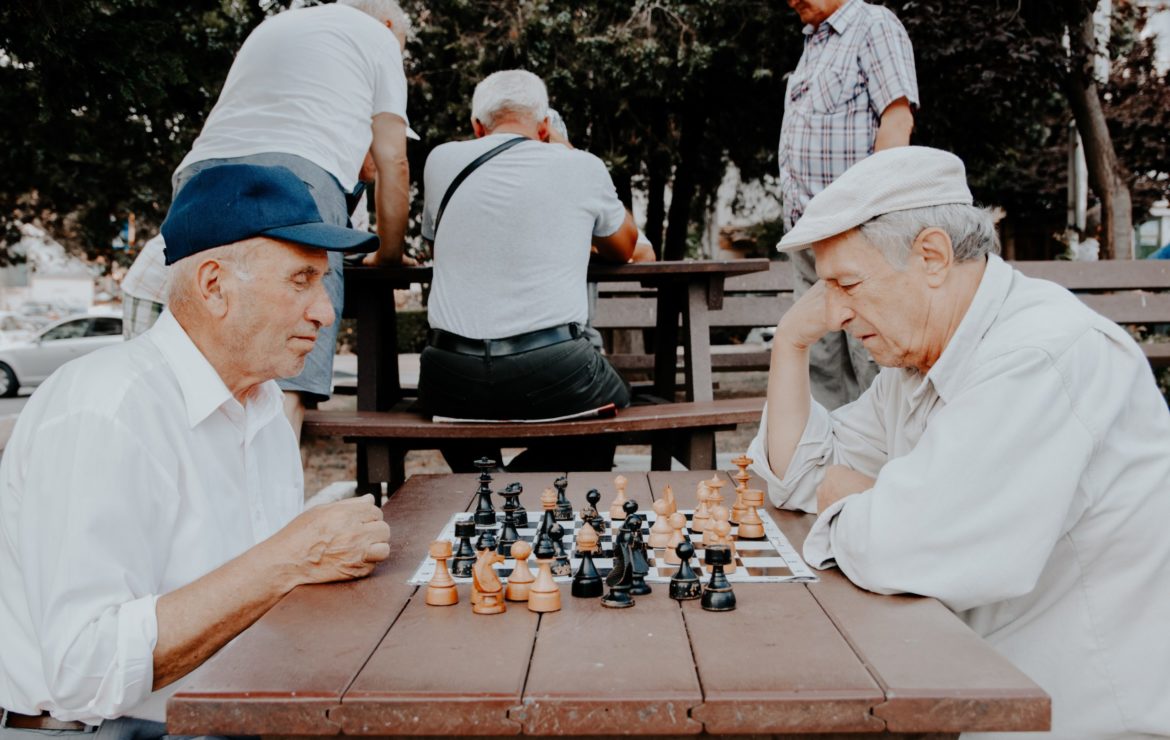Therapeutic Activities for Dementia Patients

It is very common for caregivers to provide some level of memory care to individuals with a form of dementia such as Alzheimer’s. Memory care is an effective form of therapeutic treatment because it can slow the progression of dementia and help the individual recover some independence. It’s important for the caregiver to constantly change the type of activities involved in memory care to avoid repetition and keep the activities as engaging as possible – the less engaging the activity becomes, the less therapeutic it gets.
What is memory care?
Memory care is a kind of specialized care program for individuals with a form of dementia such as Alzheimer’s. The activities in memory care are designed to help improve cognitive abilities in a fun and engaging way.
Activities for seniors with dementia
Some activities may require light physical strength, consult your physician or caregiver before attempting any of the activities.
1. Physical Exercises
Exercise has many known benefits for physical and mental health, such as, reducing the risk of cardiovascular diseases, strengthening bones, and reducing stress. Remember, each person’s health and cognitive abilities may range, as such it’s important to tailor the activity’s difficulty to match that of the individual’s ability to successfully perform it without mentally burning out – start small, and progress with baby steps.
Additional benefits:
- improving sleep
- improving mood
- improving health of the heart and blood vessels
- improving the ability to perform self care tasks such as dressing, cleaning, cooking and other daily living activities
- help with restlessness and wandering
Safety tips:
- Consult with physician/healthcare provider before engaging in any of the below exercises. It is important to know your limits.
- Monitor levels of fatigue, and exertion by constantly communicating with your caregiver.
- Stop if you feel pain, confusion, difficulty breathing or other symptoms as instructed by your caregiver/healthcare provider
- Always stay hydrated!
- For outdoor activities, wear comfortable & lightweight fabrics such as cotton, and stay out of the sun.
Simple exercises:
Walking: It is recommended to walk at least 4 times per week for 20 – 40 minutes at a time with minimal breaks (or non at all, if possible). You can even combine walking with errands and other daily living activities. Consider taking shorter walks if distance becomes a problem. Remember to wear comfortable shoes and proper clothing (e.g. during summer time, to avoid overheating, wear clothing made out of lightweight fabric such as cotton), and as well as bring a bottle of water to rehydrate.
Staying balanced in a standing position: Remain standing in an upright position, with your shoulder tucked back and chest out. This exercise is perfect for balance strengthening and can improve daily activities where standing still for longer periods is involved (e.g. washing dishes, waiting in line at the grocery store), and prevent falling.
Unsupported sitting: Sit unsupported for several minutes at a time, several times per week. This can improve balance and posture, and as well as strengthen the back and abdominal muscles.
Stretching in bed: Can help loosen stiff muscles and aid with blood circulation. The activity is very simple to perform, simply move various parts of your body and stretch muscles that feel stiff.
Moderate exercises:
Light yoga poses: Yoga can help build core strength and general flexibility. Not all yoga has to involve complicated maneuvers; depending on the fitness level of the patient, consider implementing a light yoga routine at least 2 or 4 times per week (or as instructed by physician).
Stretches/mobility exercises: Depending on the fitness level of the individual, consider various types of stretches such as sea
Tai Chi: Tai Chi can help improve balance, sleep habits, stamina, and core strength. Several studies suggest that Tai Chi can potentially preserve/improve cognitive functions, and as well as reduce the risk of dementia.
Household chores: Helping individuals with dementia perform household activities can be both fun and productive, as it slowly helps the individual regain independence with daily life activities. Start with basic chores such as folding laundry, dusting, cleaning dishes, light vacuuming, or moving around light furniture such as chairs and decorations.
Advanced exercises:
Dancing: Dancing is perfect for individuals who want to have some fun while boosting their physical, mental, and emotional wellbeing. Studies show that dancing can improve strength and muscle function, and as well as balance and flexibility, and cardiovascular health. Consider joining dedicated dancing classes at your local community or a dance school.
Water exercises: Consider joining a local YMCA or gymnasium that offers water activities such as swimming and sports.
2. Music
Research suggests that listening to music or signing songs can provide emotional and behavioral benefits for individuals with forms of dementia. Musical memories are often preserved in Alzheimer’s because key brain areas linked to musical memory are relatively undamaged by the disease. Music therapy should be personalized per individual’s preferences and the music they like; put together a list of songs that bring back memories of past events, and that appeal to your overall taste.
Music can:
- Relieve stress
- Reduce agitation & irritation
- Reduce anxiety and depression
- Improve sleep
- Improve speech
Sing alongs: Look for short catchy tunes that are easy to remember and follow along. For some it could be beneficial to print out the lyrics on post-it-notes, or large note-cards. Encourage the senior to tap to the beat, use a complimentary musical instrument, or dance lightly.
Name that tune: Make a list of all time popular songs from their time/songs that they’re familiar with, play the songs randomly and let them try to guess what song it is.
Relaxation music: Listen to relaxing music during meal times, performing house duties or chores, and/or for leisure. Typically, classical music is best suited for this. Avoid using ambient or nature tunes as they might provide contradicting experiences. For example, a senior might mistake a waterfall nature tune with running water that should be turned off. The relaxing music should have long & continuous melody and invoke emotional response of some sort, or better, pick tunes that bring back memories.








